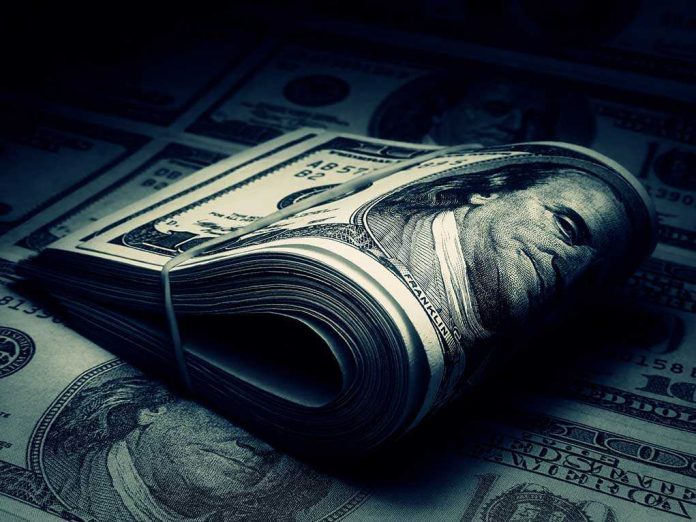
When the business partner of boxing icon Saul “Canelo” Alvarez is suspected of laundering dirty cartel money through fuel theft operations—while major government contracts keep flowing and nobody blinks—one has to wonder: is there any part of modern commerce that criminals haven’t corrupted, or is this just the new “normal” for the ruling class?
At a Glance
- Eric Zamora Delgadillo, business partner of Canelo Alvarez, is under investigation for laundering money and distributing stolen fuel for the CJNG cartel.
- Delgadillo’s companies allegedly supplied stolen fuel to a Mexican government airport project, with authorities claiming all contracts were legal and audited.
- Delgadillo’s previous company was sanctioned by the U.S. Treasury for cartel ties, raising questions about due diligence and government oversight.
- Boxing, business, and organized crime keep colliding in Mexico, with high-profile athletes and officials repeatedly linked to illicit operations.
Cartel Money, Stolen Fuel, and the Canelo Connection
Eric Daniel Zamora Delgadillo, a businessman with a knack for landing government contracts and a taste for high-profile partnerships, stands accused of laundering money and distributing stolen fuel for the Jalisco Nueva Generación cartel (CJNG). His most notable business partner? None other than Saul “Canelo” Alvarez, the face of Mexican boxing and a darling of international sports media. Together, they launched a chain of gas station convenience stores—Upper—supposedly to bring “premium service” to the masses. Turns out, the only “premium” flowing through those pumps may have been siphoned directly from Mexico’s state oil company by cartel thieves, then laundered through Delgadillo’s company, Ecocarburante. The same Ecocarburante that supplied fuel for Mexico’s new Felipe Ángeles International Airport (AIFA), built under the watchful gaze of the Mexican Ministry of Defense.
Now, while Delgadillo gets dragged into the spotlight for his alleged criminal ties, Canelo Alvarez—his business partner and the public face of their enterprise—remains silent. Maybe it’s just a bad business deal. Or maybe, when the money’s this big and the stakes this high, silence is the only logical play. Either way, the public is left to wonder: how many layers of plausible deniability does it take to keep the elite insulated from the consequences of cartel infiltration?
Government Contracts, Audits, and the Art of Looking the Other Way
Delgadillo’s operations didn’t just rope in celebrity partners and cartel clients—they landed lucrative government contracts. Between 2019 and 2022, Ecocarburante supplied fuel for the AIFA airport project, all under the approving eye of the Ministry of Defense. When reports hit the media that the fuel might have been stolen, the Ministry was quick to claim that every contract was legal, suppliers were vetted, and audits showed “no anomalies.” How convenient. Meanwhile, Delgadillo’s past is hardly a secret: his previous company, Agricola Boreal, was sanctioned by the U.S. Treasury in 2016 for laundering cartel money. How does a man with that record keep landing government business? Either due diligence in Mexico is a total joke, or the system is so riddled with backroom deals and “friends in high places” that criminals have an open door to public contracts.
All this unfolds while Mexico’s energy sector bleeds billions from fuel theft, and honest citizens pay inflated prices to subsidize the criminal elite. The Ministry’s audit reports are supposed to inspire trust, but when the fox is guarding the henhouse, “audit” is just another word for “cover story.”
The Endless Loop: Sports, Business, and Organized Crime
The collision of sports stardom, business ventures, and organized crime isn’t new in Mexico. Julio Cesar Chavez Jr., another boxing star and Canelo’s longtime rival, was recently arrested by ICE on cartel-related accusations. Chavez Jr.’s own links to the Sinaloa cartel add another layer of irony to this parade of corruption. It’s no wonder the Mexican public—and anyone who values the rule of law—has grown numb to scandal. When high-profile athletes, government officials, and business leaders mingle so freely with criminal organizations, what hope do ordinary citizens have for justice or honest government?
But here’s the kicker: even as evidence piles up, and American authorities flag companies for cartel connections, business rolls on. The government denies everything, audits itself, and finds no wrongdoing. Canelo’s brand keeps growing, the pumps keep flowing, and the only losers are the working families paying the price for a rigged system.














